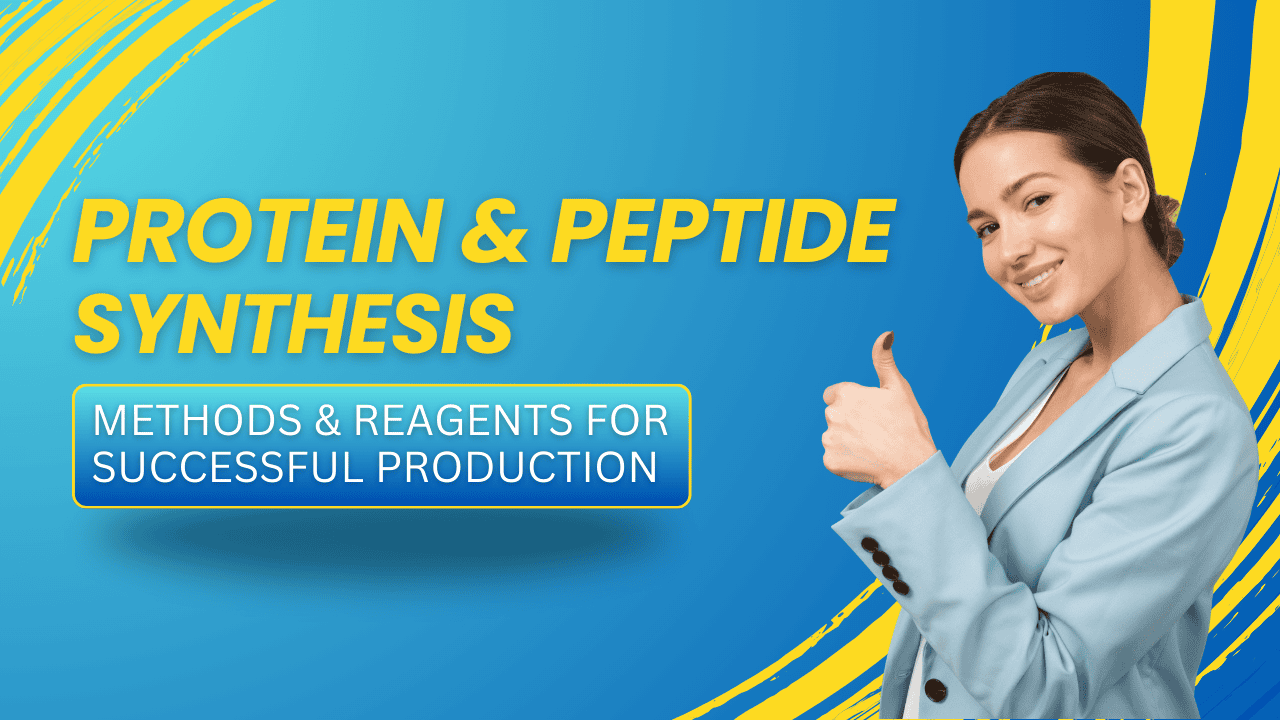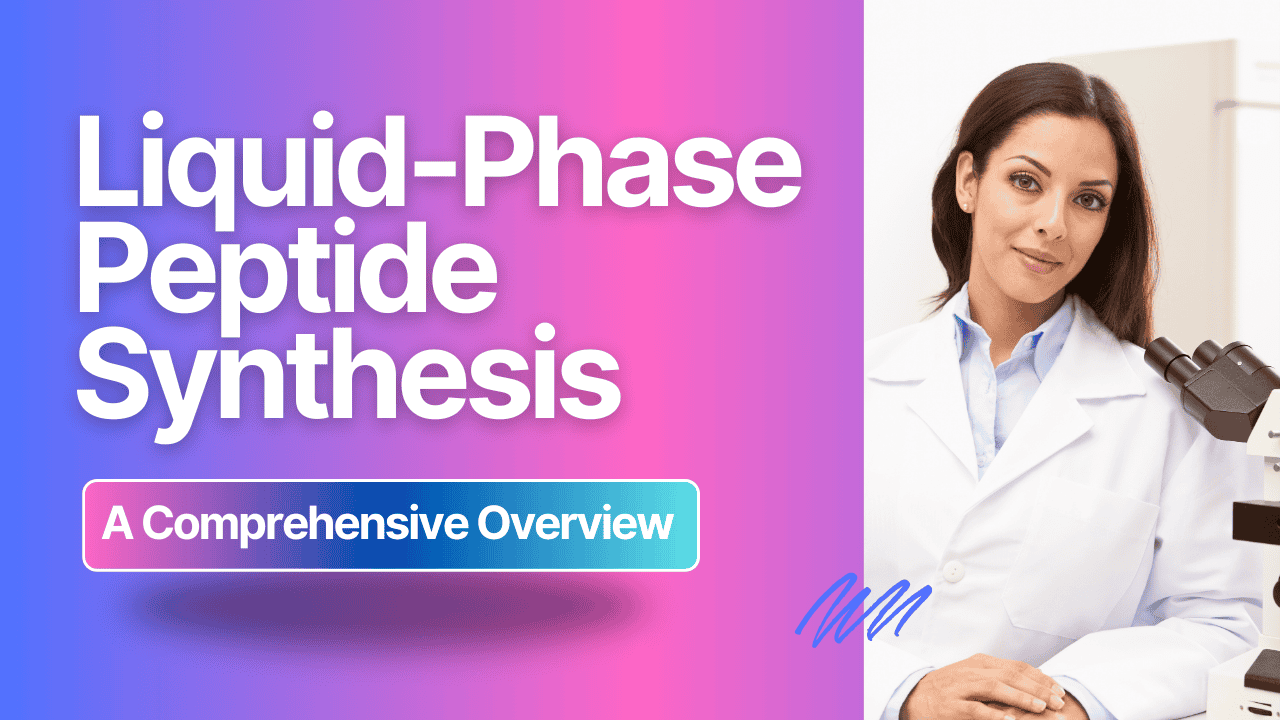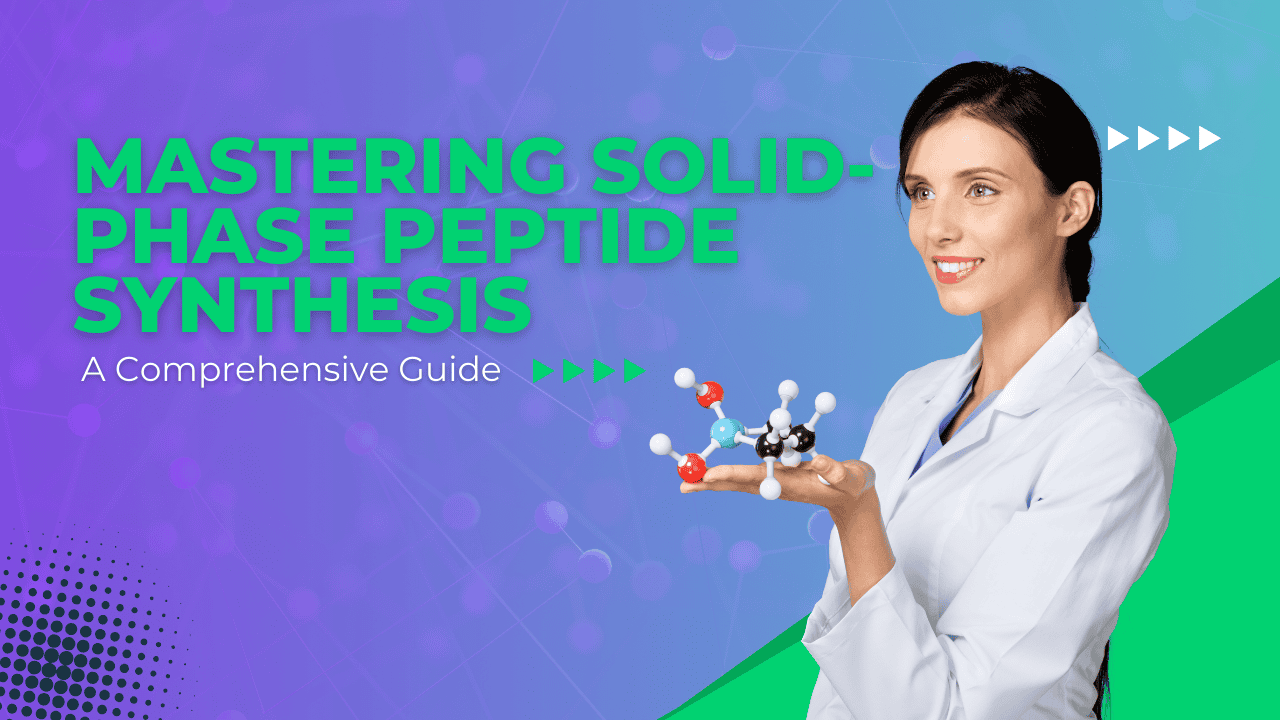

Dive into the fascinating world of liquid-phase peptide synthesis, or LPPS, where the intricacies of amino acids and reagents come together in an elegant dance of chemical reactions.
This article will unravel the complexities of LPPS, its importance, methods, and future directions.
If you’re a biochemist, a student, or just a curious soul, this comprehensive guide will enrich your understanding and appreciation for this vital scientific technique.
Ready to embark on this journey?
Liquid-phase peptide synthesis (LPPS) is a method used to synthesize peptides in the liquid phase, involving the sequential addition of amino acids in a solution. It is distinct from solid-phase methods, offering unique advantages and challenges in the peptide synthesis landscape.
Unlike its counterpart, solid-phase peptide synthesis (SPPS), LPPS occurs in a solution, allowing for easier purification of intermediates. However, it typically requires more solvents and reagents, which can be costly.
Researchers might opt for LPPS due to its ability to handle complex peptides that are difficult to manage in solid-phase systems. Moreover, it often results in higher purity peptides due to its precise purification steps.
The core of LPPS lies in the stepwise addition of amino acids, coupling them to a growing peptide chain in the solution. Each step involves protecting group removal, coupling, and purification.
The process primarily involves amide bond formation between amino acids. This coupling reaction can be facilitated by various chemical agents and solvents designed to enhance reaction rates and yield.
Solvents in LPPS, such as DMF or DCM, dissolve both the amino acids and the growing peptide chain, allowing for efficient mixing and reaction. These organic solvents play a crucial role in ensuring the reaction’s efficiency and peptide purity.
Peptide synthesis has transformed dramatically from early solution-phase efforts to modern automated solid-phase methods. Each advancement has contributed to more efficient, cleaner, and faster synthesis processes.
LPPS gained traction in the mid-20th century, offering a viable alternative to the solid-phase synthesis. Despite newer techniques, it remains relevant for specific applications today.
Luminaries like Bruce Merrifield, who invented solid-phase peptide synthesis, also explored liquid-phase methods. Their foundational work laid the groundwork for modern peptide chemistry.
LPPS includes various methods like fragment condensation and solution-phase coupling, each tailored to specific peptide sequences and synthesis goals.
Given the complexity, maintaining rigorous solvent control and monitoring of each process cycle is vital. Variations in reaction rates and careful handling of reagents are also crucial.
Key reagents include protected amino acids, coupling agents like HOBt, and solvents such as DMF. Each plays a pivotal role in the reaction’s success.
Essential gear includes reaction vessels, chromatographic columns, and monitoring equipment to track the reaction’s progress and purify the final peptide.
Regular calibration and maintenance ensure accurate measurements and consistent results, crucial for high-fidelity peptide synthesis.
LPPS is instrumental in producing therapeutic peptides, research peptides, and complex sequences not feasible through other methods. For instance, it’s used in the synthesis of complex peptide drugs.
In drug development, LPPS enables the synthesis of high-purity peptides that are integral to creating peptide therapeutics with precise functionality and minimal impurities.
Absolutely! Researchers utilize LPPS to explore novel peptide designs, study protein interactions, and develop new biochemical assays.
Challenges include handling large volumes of solvents, complex purification steps, and the need for precise control over reaction conditions to avoid impurities.
To tackle these issues, employing high-purity reagents, optimizing reaction conditions, and using advanced monitoring techniques can significantly enhance the process.
LPPS can be more labor-intensive and costly compared to solid-phase methods. Coupling steps are not always quantitative, requiring careful optimization and control.
Optimization involves tuning the concentration of reagents, adjusting solvent volumes, and refining purification steps to maximize yield and purity.
Using refined coupling agents, high-quality solvents, and robust purification methods like liquid chromatography can significantly improve outcomes.
Side reactions can be minimized by using protective groups, optimizing reaction times, and maintaining stringent control over reaction conditions and reagent purity.
Emerging trends include the integration of automation, sustainable solvents, and advanced coupling chemistries to enhance efficiency and reduce environmental impact.
Technological advances will streamline process development, enable large-scale production of peptides, and facilitate more complex peptide designs with higher precision.
LPPS will continue to be a cornerstone in peptide manufacturing, supporting the development of innovative peptide therapeutics and complex biochemical research.
LPPS can be expensive, with costs influenced by reagent quality, solvent usage, and the complexity of the peptide being synthesized.
Key cost factors include the purity and quantity of reagents, the scale of synthesis, and the efficiency of purification methods.
Cost efficiency can be achieved by optimizing reaction conditions, reusing solvents where possible, and scaling up synthesis processes while maintaining quality.
It’s essential to handle reagents and solvents with care, use appropriate protective equipment, and ensure proper ventilation to prevent exposure to hazardous chemicals.
Reagents should be handled using standardized safety protocols, including using gloves, goggles, and working in well-ventilated areas or fume hoods.
LPPS can generate significant solvent waste; thus, adopting green protocols, recycling solvents, and choosing eco-friendly reagents are vital for sustainability.
Companies have successfully used LPPS to create high-purity therapeutic peptides and complex sequences, highlighting its versatility and effectiveness in commercial applications.
Businesses that utilize LPPS often achieve higher-quality products with tailored functionalities, giving them a competitive edge in peptide therapeutics and research markets.
Products range from custom peptides for research to pharmaceutical-grade peptide drugs and innovative biochemical tools with precise applications.
While solid-phase synthesis is faster and less labor-intensive, LPPS offers superior purification and the ability to handle complex sequences that challenge solid-phase methods.
Combining LPPS and SPPS can leverage the strengths of both approaches, providing flexibility and enhancing the overall efficiency of peptide synthesis.
The primary advantages include better control over purification, the ability to monitor each step closely, and higher yields of certain complex peptides.
Developing a robust protocol involves thorough planning of each step, careful selection of reagents, and continuous monitoring to ensure reproducibility and efficiency.
Customization must account for the unique properties of target peptides, reaction conditions, and the specific goals of the synthesis to tailor the process effectively.
Validation involves repeating the synthesis under the same conditions to ensure consistent results, using standards and controls to confirm accuracy.
Peptide analysis techniques include high-performance liquid chromatography (HPLC), mass spectrometry, and NMR spectroscopy, enabling comprehensive characterization.
These techniques are pivotal in assessing purity, identifying compounds, and confirming the peptide sequence, ensuring the quality of the synthesized peptide.
Accurate characterization requires using validated analytical methods, calibrating instruments regularly, and employing appropriate standards.
Common issues include incomplete coupling, side reactions, impurities, and difficulties in purification. Identifying and addressing these promptly is vital.
Impurities can be detected via analytical techniques and resolved by optimizing reaction conditions, improving purification steps, and using higher-quality reagents.
If reactions appear incomplete, extend reaction times, increase reagent concentrations, or employ stronger coupling agents to drive the reaction to completion.
Environmental concerns include solvent waste, chemical disposal, and the energy-intensive nature of LPPS. Implementing green chemistry practices can mitigate these impacts.
Adopting solvent recycling, using eco-friendly reagents, and optimizing energy use can make LPPS more sustainable, reducing its environmental footprint.
Yes, alternatives like water-based solvents and biodegradable reagents can replace traditional solvents, aligning LPPS with greener practices.
Key skills include a thorough understanding of peptide chemistry, proficiency in handling chemical reagents, and expertise in analytical techniques.
Training involves hands-on experience, guided by standard protocols and safety instructions, supplemented with theoretical knowledge on peptide synthesis.
Numerous resources, including academic courses, workshops, scientific literature, and online tutorials, are available for learning and honing LPPS skills.
Industry standards encompass guidelines for reagent purity, process validation, safety protocols, and analytical methods to ensure high-quality peptide products.
GMP (Good Manufacturing Practice) guidelines ensure that peptide synthesis processes meet stringent quality and safety standards, crucial for pharmaceutical applications.
Implementing best practices involves adhering to standardized protocols, regular training, and continuous monitoring and validation to maintain high-quality synthesis processes.
Several case studies illustrate LPPS’s effectiveness in producing high-purity peptides for therapeutic use, demonstrating its reliability and precision.
LPPS has enabled the synthesis of intricate peptides that were previously unattainable, offering solutions to challenges in drug development and research.
Innovations include new coupling chemistries, enhanced purification techniques, and eco-friendly synthesis methods, pushing the boundaries of peptide science.
Key research areas include developing sustainable synthesis methods, enhancing coupling efficiencies, and exploring new peptide designs for therapeutic applications.
Emerging technologies like automation, AI-driven optimization, and advanced analytical tools will revolutionize LPPS, making it faster, cleaner, and more precise.
Various funding opportunities from government grants, research institutions, and private sectors are available to support innovative LPPS research and development projects.
By weaving together science, practical insights, and an engaging narrative, this article aims to provide a holistic understanding of liquid-phase peptide synthesis, enriching your knowledge and inspiring further exploration into this fascinating field. So, whether you’re a seasoned scientist or a curious newcomer, take a leap into the world of peptides and discover the wonders of LPPS.
The primary steps in liquid-phase peptide synthesis are:
These steps ensure an efficient synthesis process and produce high-quality peptides.
Liquid-phase peptide synthesis (LPPS) involves synthesizing peptides in a solution, allowing for easier purification of intermediates. In contrast, solid-phase peptide synthesis (SPPS) occurs on a solid support, facilitating automation and rapid synthesis. SPPS is generally faster and less labor-intensive, while LPPS offers better control over the purification process.
Liquid phase synthesis is a method of synthesizing compounds in the liquid phase, where reactants are dissolved in solvents. This technique allows for precise reaction control and efficient mixing. It’s commonly used in liquid-phase peptide synthesis to produce peptides with high purity through careful monitoring and purification.
Solution-phase peptide synthesis is a method where peptides are synthesized in a liquid solution, much like liquid-phase synthesis. This approach involves the iterative addition of amino acids to a growing peptide chain, followed by purification and deprotection steps. It is useful for producing complex peptides with high purity.
Solid-phase peptide synthesis (SPPS) is often considered better due to its efficiency, automation capabilities, and rapid synthesis times. With SPPS, peptides are anchored to a solid support, simplifying wash steps and enabling rapid peptide elongation. This method is particularly advantageous for producing large quantities of peptides quickly.
Solid-phase peptide synthesis (SPPS) involves attaching peptides to a solid support and adding amino acids step-by-step. Solution-phase peptide synthesis, or liquid-phase synthesis, mixes reactants in a solvent, allowing detailed purification. Both methods have unique advantages and are used based on the complexity and desired purity of the peptide.
Advantages of using solid-phase peptide synthesis (SPPS) include:
These benefits make SPPS a popular choice in peptide manufacturing.
The primary difference between solid-phase peptide synthesis (SPPS) and liquid-phase peptide synthesis (LPPS) is the presence of a solid support in SPPS. In SPPS, peptides are anchored to solid beads, allowing for easy separation and purification. In LPPS, peptides are synthesized in solution, requiring more extensive purification and handling steps.
Liquid-phase synthesis is a method where reactants are dissolved in solvents to perform the synthesis in a liquid medium. This method is used in chemistry and biochemistry for processes like liquid-phase peptide synthesis, enabling detailed purification and control over reaction conditions.
Liquid-phase peptide synthesis (LPPS) is a technique where peptides are synthesized in a solution, involving the stepwise addition of amino acids and meticulous purification steps. This method allows for the synthesis of high-purity peptides, although it can be more labor-intensive compared to solid-phase peptide synthesis (SPPS).
Dr. Richard DiMarchi is a renowned biochemist and a pioneer in the field of peptide therapeutics. With over 30 years of experience in peptide synthesis and drug development, Dr. DiMarchi has significantly advanced our understanding of peptide-based treatments. His groundbreaking research has led to the development of numerous peptide drugs that have had a profound impact on treating metabolic disorders and other diseases. Dr. DiMarchi’s work exemplifies the pinnacle of expertise and innovation in the peptide field.
Some of his notable publications include:
The Discovery and Development of Liraglutide and Semaglutide – This article provides an in-depth look at the discovery and development of GLP-1 receptor agonists, which are now widely used in the treatment of type 2 diabetes. This publication has been cited extensively in the field of endocrinology.
Peptide Therapeutics: Current Position and Future Directions – Published in the Annual Review of Pharmacology and Toxicology, this comprehensive review explores the current state and future potential of peptide drugs, highlighting innovative approaches in peptide chemistry.
Dr. DiMarchi has received numerous accolades, including the ACS Ralph F. Hirschmann Award in Peptide Chemistry and the prestigious European Inventor Award for his contributions to metabolic disease treatment. These honors underscore his authority and trustworthiness in the field of peptide therapeutics.
Dr. Bruce Merrifield was a legendary biochemist known for inventing solid-phase peptide synthesis (SPPS), a revolutionary method that transformed the preparation of peptides. With a career adorned with accolades, including the Nobel Prize in Chemistry in 1984, Dr. Merrifield’s contributions have left an indelible mark on the field of peptide and protein synthesis.
Key publications by Dr. Merrifield include:
Solid Phase Peptide Synthesis. I. The Synthesis of a Tetrapeptide – This seminal paper, published in the Journal of Biological Chemistry, describes the development of SPPS, detailing the methodology that underpins modern peptide synthesis techniques.
Concept and Early Development of Solid Phase Peptide Synthesis – Published in Peptide Research, this article provides a historical perspective on the origins and impact of SPPS, offering invaluable insights into the method’s evolution and significance.
Dr. Merrifield’s innovations have streamlined peptide synthesis, enabling the rapid production of peptides and proteins essential for research and therapeutic applications. His legacy in the field is characterized by innovation, precision, and a relentless pursuit of scientific excellence. His work continues to inspire and guide contemporary research in peptide chemistry, solidifying his status as a trusted authority.
Aihara, K., Komiya, C., Shigenaga, A., Inokuma, T., Takahashi, D., & Otaka, A. (2015). Liquid-Phase Synthesis of Bridged Peptides Using Olefin Metathesis of a Protected Peptide with a Long Aliphatic Chain Anchor. Organic Letters, 17(3), 696–699. https://doi.org/10.1021/ol503718j
Fischer, P. M., & Zheleva, D. I. (2002). Liquid‐phase peptide synthesis on polyethylene glycol (PEG) supports using strategies based on the 9‐fluorenylmethoxycarbonyl amino protecting group: application of PEGylated peptides in biochemical assays. Journal of Peptide Science, 8(9), 529–542. https://doi.org/10.1002/psc.413
Han, H., Wolfe, M. M., Brenner, S., & Janda, K. D. (1995). Liquid-phase combinatorial synthesis. Proceedings of the National Academy of Sciences, 92(14), 6419–6423. https://doi.org/10.1073/pnas.92.14.6419
Lee, Y. S. (2019). Gram‐Scale preparation of C‐Terminal‐Modified enkephalin analogues by typical Liquid‐Phase peptide synthesis. Current Protocols in Protein Science, 98(1). https://doi.org/10.1002/cpps.97
Sharma, A., Kumar, A., De La Torre, B. G., & Albericio, F. (2022). Liquid-Phase peptide synthesis (LPPS): a third wave for the preparation of peptides. Chemical Reviews, 122(16), 13516–13546. https://doi.org/10.1021/acs.chemrev.2c00132
Takahashi, D., Yano, T., & Fukui, T. (2012). Novel Diphenylmethyl-Derived Amide Protecting Group for Efficient Liquid-Phase Peptide Synthesis: AJIPHASE. Organic Letters, 14(17), 4514–4517. https://doi.org/10.1021/ol302002g
Wei, M., Huang, X., Liao, L., Tian, Y., & Zheng, X. (2023). SENP1 decreases RNF168 phase separation to promote DNA damage repair and drug resistance in colon cancer. Cancer Research, 83(17), 2908–2923. https://doi.org/10.1158/0008-5472.can-22-4017
Yeo, J., Peeva, L., Chung, S., Gaffney, P., Kim, D., Luciani, C., Tsukanov, S., Seibert, K., Kopach, M., Albericio, F., & Livingston, A. (2021). Liquid phase peptide synthesis via One‐Pot Nanostar Sieving (PEPSTAR). Angewandte Chemie International Edition, 60(14), 7786–7795. https://doi.org/10.1002/anie.202014445
ALL ARTICLES AND PRODUCT INFORMATION PROVIDED ON THIS WEBSITE ARE FOR INFORMATIONAL AND EDUCATIONAL PURPOSES ONLY. The products offered on this website are intended solely for research and laboratory use. These products are not intended for human or animal consumption. They are not medicines or drugs and have not been evaluated or approved by the FDA to diagnose, treat, cure, or prevent any disease or medical condition. Any form of bodily introduction is strictly prohibited by law.



Discount Applied Successfully!
Your savings have been added to the cart.